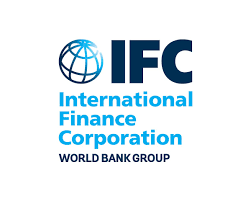IFC, Canadian Govt, Sink $5 Million into Solar Farm Grist to Address Power Shortage

In a move to address Nigeria’s energy gap, the International Finance Corporation (IFC) and the Canadian Government have announced a $5 million investment in Husk Nigeria, a subsidiary of Husk Power Systems Inc., to scale up the deployment of solar hybrid mini grids and renewable energy in underserved communities in Northern Nigeria.
The investment, which marks the first under the IFC’s Distributed Access through Renewable Energy Scale-up Platform (DARES), aims to expand access to affordable, reliable, and renewable electricity in off-grid areas, a major development hurdle in Nigeria.
The DARES Platform is a $200 million debt facility approved in November 2024 to catalyze private sector solutions across West and Central Africa.
According to a statement released by the IFC, the financing package will enable Husk to develop and operate up to 108 mini-grid sites, connecting approximately 115,000 individuals and businesses with around 28,750 new electricity connections.
This initiative is expected to provide clean, affordable energy to underserved communities, reducing their reliance on expensive and polluting diesel generators.
The total project cost is estimated at 25million, with IFC’s 5 million package including a 2.5 million senior loan from its own account and a 2.5 million concessional subordinated loan from the Canada-IFC Renewable Energy Programme for Africa.
The facility is structured as a revolving loan, allowing Husk to repay and redraw funds multiple times during the project’s implementation.
IFC Regional Vice President for Africa, Ethiopis Tafara, described the development as “an innovative approach to tackling one of Africa’s most pressing challenges, energy access.”
Tafara emphasized that the DARES Platform is a scalable model that can be replicated across the continent, underscoring IFC’s commitment to advancing sustainable energy solutions through strong partnerships between the private sector, governments, and development institutions.
Co-founder and CEO of Husk, Manoj Sinha, welcomed the investment, stating, “This innovative debt facility is exactly what the minigrid industry needs to scale — blended, long-term and affordable capital.”
Country Director, Husk Nigeria, Olu Aruike, noted that access to working capital is critical for sustained and rapid growth, adding that the investment will enable Husk to add 108 new communities to its minigrid portfolio.
Nigeria, despite being Africa’s largest economy, has the world’s highest electricity access deficit, with over 85 million people living without power.
Even those connected to the national grid often experience unreliable supply, prompting widespread reliance on expensive and polluting diesel generators.
The IFC’s investment in Husk Nigeria is a significant step towards addressing this challenge, providing a cost-effective alternative to diesel generators and reducing greenhouse gas emissions.
The investment is also complemented by the World Bank-financed Nigeria DARES Project, a $750 million initiative launched in December 2023 and implemented by the Rural Electrification Agency. Together, these efforts aim to provide over 17.5 million Nigerians with new or improved electricity access through decentralized renewable energy systems.







